Sound of Charlotte Blog
Five Must-See Concerts of the 2023-24 Season
September 6, 2023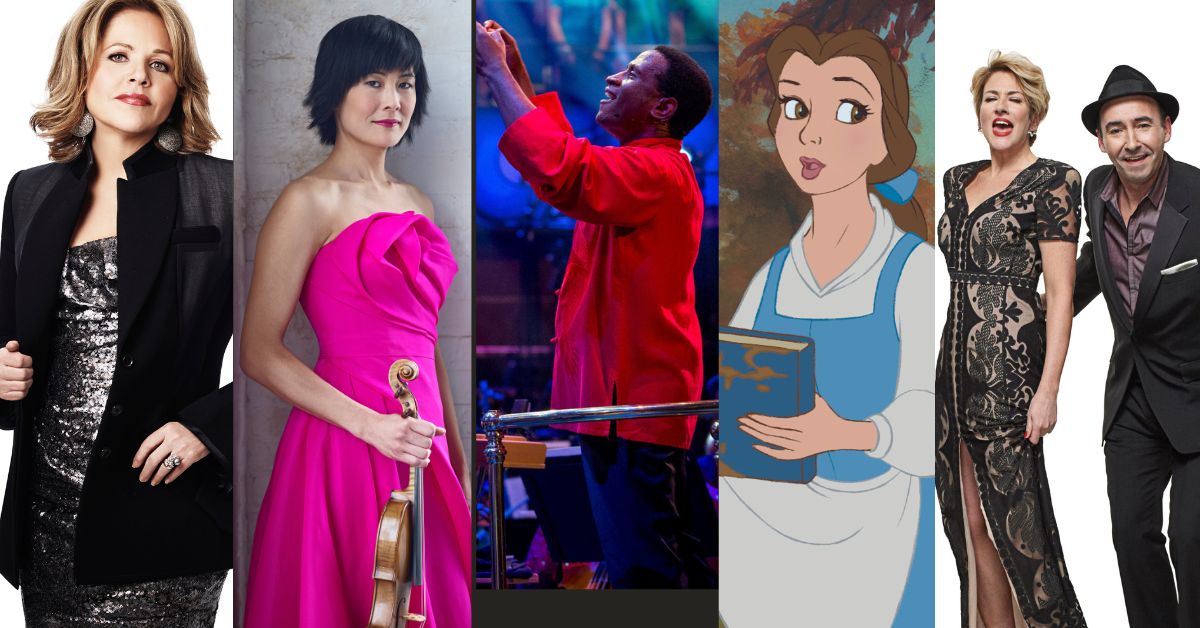
Anticipation is building as we get closer to the start of our 2023-24 season! With such an incredible lineup of concerts, choosing where to begin might seem overwhelming. But don't worry, we're here to help! Here are five concerts that deserve a special spot on your calendar:
An Evening with Renée Fleming
September 20 | Belk TheaterLovingly referred to as "the people's diva," Renée Fleming is one of the most beloved and celebrated singers of our time -- and she's returning to Charlotte for the first time in nearly 20 years! In this one-night-only event, led by Conductor Laureate Christopher Warren-Green, Ms. Fleming performs favorites from La Bohème and The Sound of Music alongside Richard Strauss's Four Last Songs, which she hails as "the greatest piece written for soprano and orchestra."
The Hot Sardines
November 10-11 | Knight TheaterThis group puts the "hot" in hot jazz! Think Harlem Renaissance cabarets and New Orleans speakeasies with a touch of cigar smoke and Parisian "je ne sais quoi." The Hot Sardines offer a mix of standards and modern-day hits, brought to life with brassy horn arrangements, rollicking piano, and incredible vocals by Miz Elizabeth.
Verdi's Requiem
November 17-18 | Belk TheaterThe raw power of Verdi's Requiem -- with more than 70 musicians and a choir of over 100 -- will blow you right back in your seat when Kwamé Ryan joins the Charlotte Symphony and Charlotte Master Chorale to conduct this musical tour de force. Verdi's Requiem is full of contrasts, from the sublime lyricism of the opening movement to the sheer terror of its infamous "Dies irae."
Beauty and the Beast in Concert
January 12-13 | Oven AuditoriumRelive the enchantment of Belle and the Beast's timeless journey and share the magic of this Disney classic with your little ones! Alan Menken's Academy Award-winning score, including "Tale as Old as Time" and "Be Our Guest," will come to life when performed by the Charlotte Symphony in sync with the full-length film. Get there a few minutes early to grab some popcorn and enjoy the show!
Jennifer Koh Plays Mazzoli
January 19-20, 2024 | Knight TheaterThis all-American program takes us from the Blue Ridge Mountains of North Carolina to the open ranges of the Old American West with Jennifer Higdon's Cold Mountain Suite and Aaron Copland's Billy the Kid Suite. Violinist Jennifer Koh, known for her intense and commanding performances, brings her dazzling virtuosity to Missy Mazzoli's Violin Concerto, Procession, which will lead you on a music journey through five healing spells based on the healing rituals of the Middle Ages.
Kenney Potter on Mendelssohn’s Lobgesang
March 1, 2023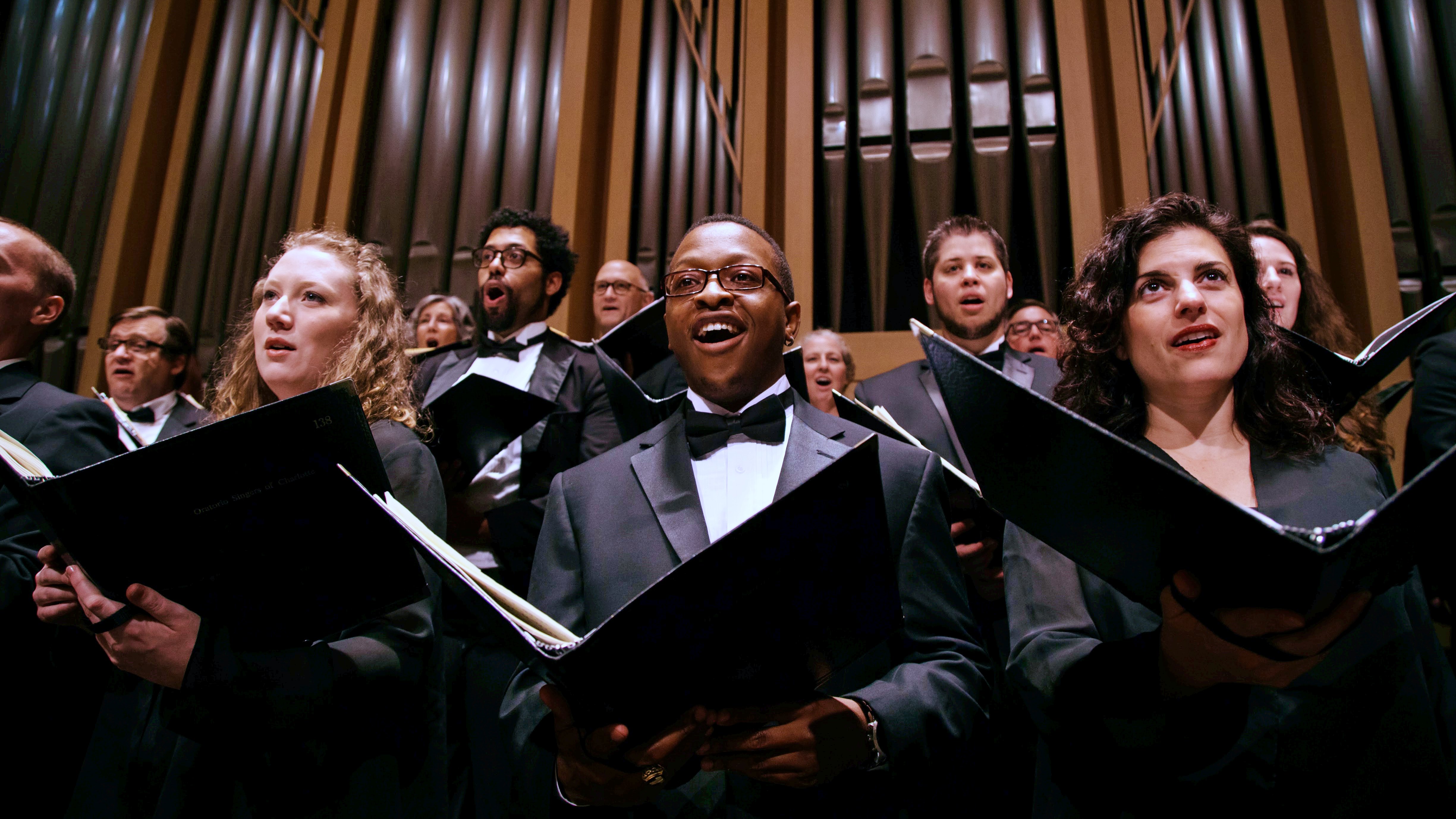
Jessica Cottis returns to the Charlotte Symphony on March 24 & 25 to lead the Orchestra and Charlotte Master Chorale in Mendelssohn's Lobgesang (Hymn of Praise), A Symphony-Cantata. The work premiered in 1840 as the culmination of a festival in Leipzig celebrating the 400th anniversary of Gutenberg's printing press. Robert Schumann attended the premiere and reported on the similarities between Lobgesang and Beethoven's Ninth, "save for the distinguishing difference that the three orchestral movements proceed without any pause between them -- an innovation in the symphonic form. No better form could have been selected for this special purpose."
Here, Charlotte Master Chorale Artistic Director Kenney Potter shares some insight on this incredible work and how the Chorale is preparing.
| For those who are unfamiliar with this work, what should they expect? Triumphant music that expresses the text of Psalm 150 beautifully. The listener will hear first the trombones state the main theme of the work, which is sung with the text of Psalm 150 ("Let everything that has breath, praise the Lord.") What I find interesting is that the trombone is the horn of choice for many German speakers vs. trumpets. A good example is in the Mozart Requiem, where the Tuba Mirum "final days" theme is played by the trombone (this is due to Luther's translation that the trombone signaled the last days). I think it was a purposeful decision to utilize the trombones. |
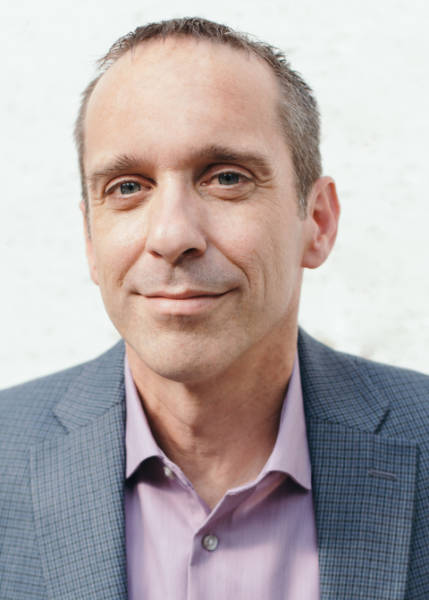 |
What do you make of the comparisons between Mendelssohn's Lobgesang to Beethoven's Symphony No. 9?
There are obvious similarities, since the listener will hear three orchestra movements (labeled in traditional format) followed by a choral movement. The difference is that Mendelssohn himself labeled this work as a "symphony-cantata on words of the Holy Bible for soloists, choir, and orchestra."
What does it take to prepare the Charlotte Master Chorale for a work of this scope?
Compared to Beethoven 9, there is more material to prepare. Also, Mendelssohn was more understanding of the voices and their ranges and capabilities. Beethoven is extremely challenging for vocalists due to the extreme ranges, particularly for the sopranos.
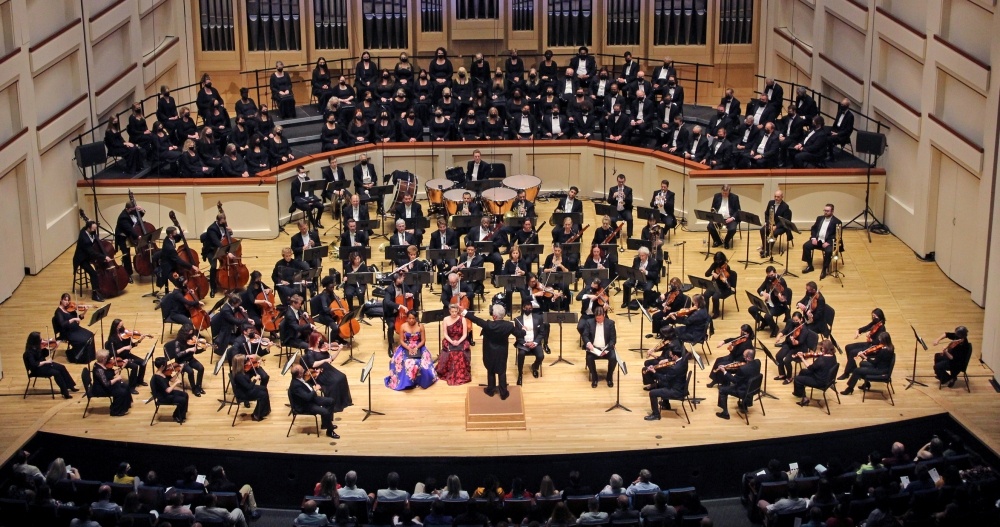
What are your favorite moments in the work?
The opening chorus, the utilization and treatment of the "Now Thank We All Our God" tune in the eighth movement, and the final fugue.
What are you looking forward to most about this performance?
It is always a joy to collaborate with the Charlotte Symphony, especially on works that our Charlotte audience needs to hear!
The Charlotte Symphony and Charlotte Master Chorale perform Mendelssohn Hymn of Praise on March 24 & 25 at Belk Theater -- Get tickets today!
Read more
Joshua Weilerstein on Brahms’s Fourth Symphony
January 19, 2023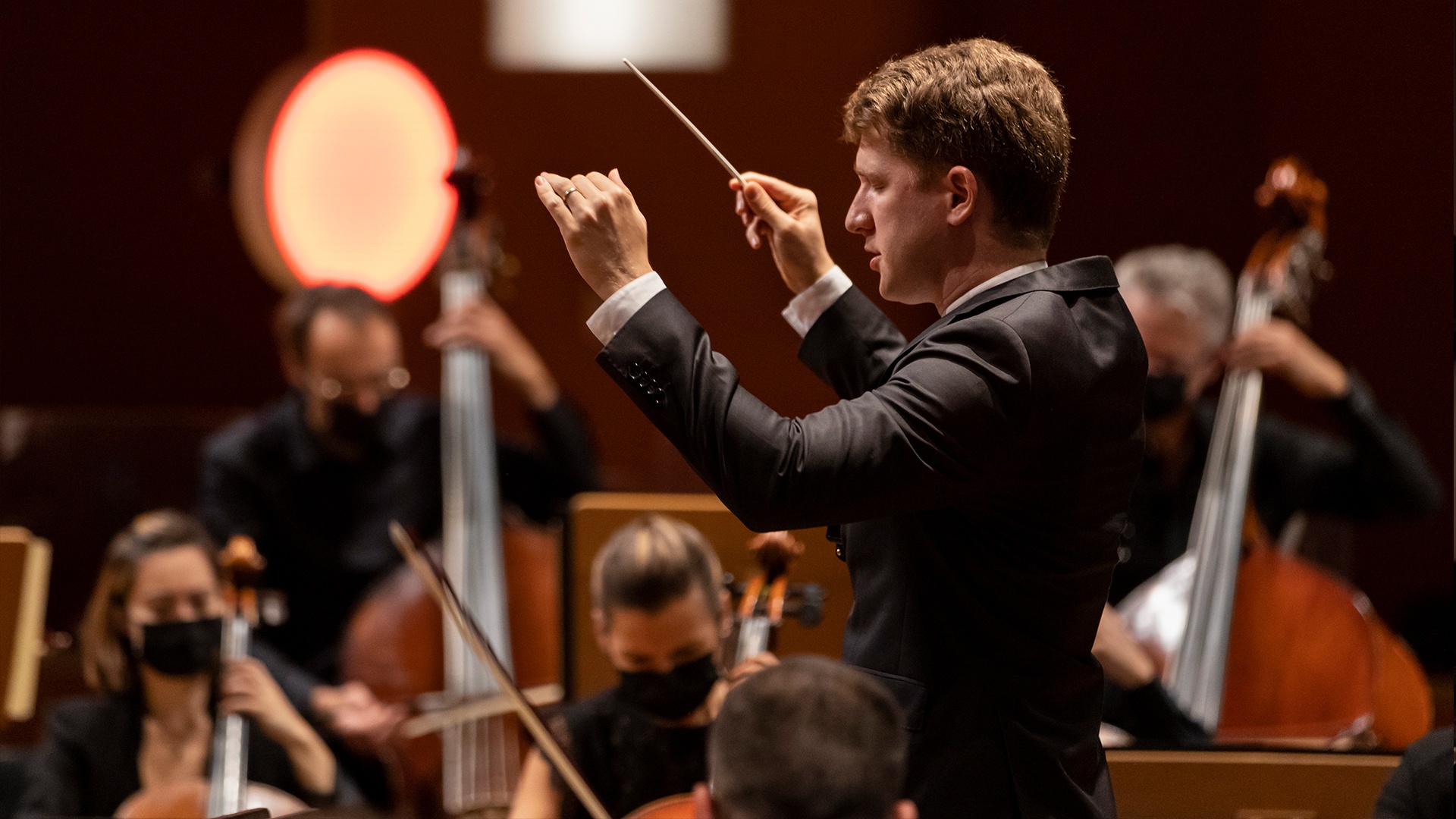
Acclaimed conductor Joshua Weilerstein makes his debut with the Charlotte Symphony on February 10 & 11, leading the orchestra in Brahms's Symphony No. 4. This remarkable work showcases the composer's mastery of form, counterpoint, and emotional expression; and is a must-hear for classical music lovers and newcomers alike. The program will also include Ethel Smyth's On the Cliffs of Cornwall and Edvard Grieg's Piano Concerto in A minor.
Here, Joshua Weilerstein shares some insight into this incredible program.
What stands out to you most about this concert?
Brahms's Fourth Symphony is one of the most intensely passionate pieces that Brahms ever wrote. It represented 'the end' for him in many ways. It is his last symphony, last major orchestral work, and it seems to almost express an apocalyptic sense as well, as Brahms saw the deepening fissures and cracks that would result in the breakdown of European society in the years after he wrote the symphony. At the same time, it is a piece full of all the love and warmth that makes Brahms's music so irresistible to us.
To put it briefly, it is a symphony that encompasses the entire gamut of human emotion, and its intensity makes it unforgettable to hear live! It's also a great pleasure to be doing the music of Ethel Smyth and Edvard Grieg as well. The three composers once shared a meal together, which makes us feel like we've gone back in time to hear this music.
What are you looking forward to about working with the Charlotte Symphony?
I've never been to Charlotte before, so I'm very excited to be meeting the orchestra for the first time and to get to know the city. It's always a thrill to make music with a brand new group of people.
Learn more about this program from Joshua Weilerstein at the pre-concert talk, held before each concert on the Mezzanine Level of the lobby at 6:30 pm. Get tickets today!
Read more
A Composer to Know: Erich Wolfgang Korngold
January 3, 2023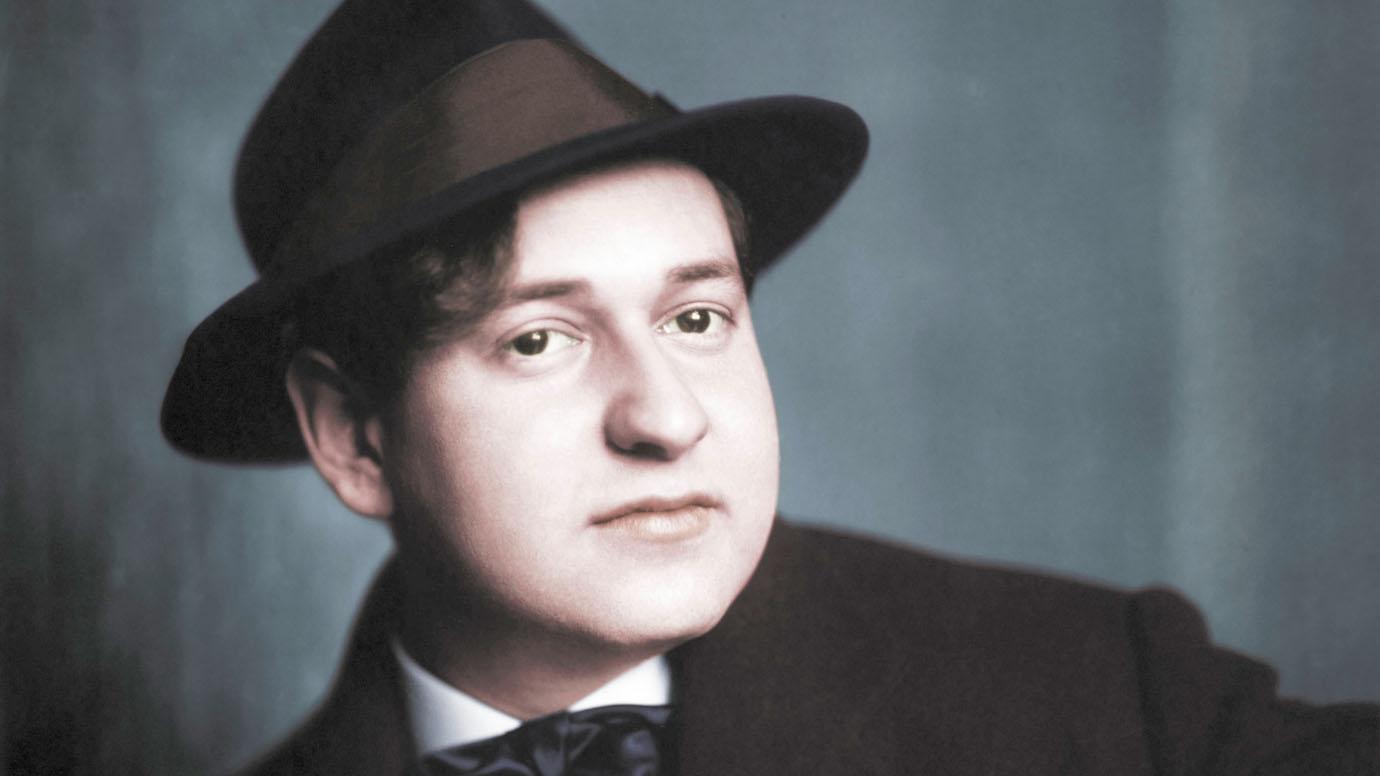
If you've visited a movie theater and delighted in the grand scores of composers like John Williams, Michael Giacchino, or Hans Zimmer, you owe a debt of gratitude to a composer who came before -- Erich Wolfgang Korngold.
Born in 1897 in what is now the Czech Republic, Korngold was a child prodigy, composing the ballet Der Schneemann (The Snowman) at age 11, causing quite a sensation at its debut performance in Vienna. As a young man, he composed multiple operas including Die tote Stadt (The Dead City), which became one of the greatest hits of the 1920s, receiving several performances at the Metropolitan Opera. The work was eventually banned by the Nazi regime because of Korngold's Jewish ancestry and after WWII, it fell into obscurity.
But it was Korngold's background in opera which revolutionized cinematic music. In the early 1930s, Korngold traveled to the United States to work on the film A Midsummer Night's Dream and began traveling between the US and Europe until the spread of Nazi influence forced him to settle in California in 1938. Korngold brought to film scoring the technique of mimicking the rhythms of spoken word and the frequent use of leitmotifs -- musical themes for characters, items, or concepts -- borrowed from Wagner's epic operas and heard today in movies like Star Wars. In 1938 Korngold received an Oscar for the score of The Adventures of Robin Hood.
Outside of the film industry, Korngold wrote plenty of non-programmatic music, including his Violin Concerto, which has become one of the mainstays of the repertoire and received an enthusiastic response after its premiere in St. Louis. The critics in New York were harsher, with The New York Times critic panning it as a "Hollywood Concerto," reflecting the prejudice against Korngold's lush and romantic musical style and the way in which the music establishment looked down upon film composers.
The work was dedicated to Alma Mahler, the widow of Korngold's childhood mentor, Gustav Mahler, and received its premiere in February of 1947 by Jascha Heifetz and the St. Louis Symphony conducted by Vladimir Golschmann. All three movements of this virtuosic and demanding concerto draw on themes from films produced between 1937 and 1939.
Experience Erich Korngold's Violin Concerto performed by Bella Hristova with conductor Kwamé Ryan on January 13 &14 at the Belk Theater.
Read more
In Person with Jessica Cottis
January 18, 2022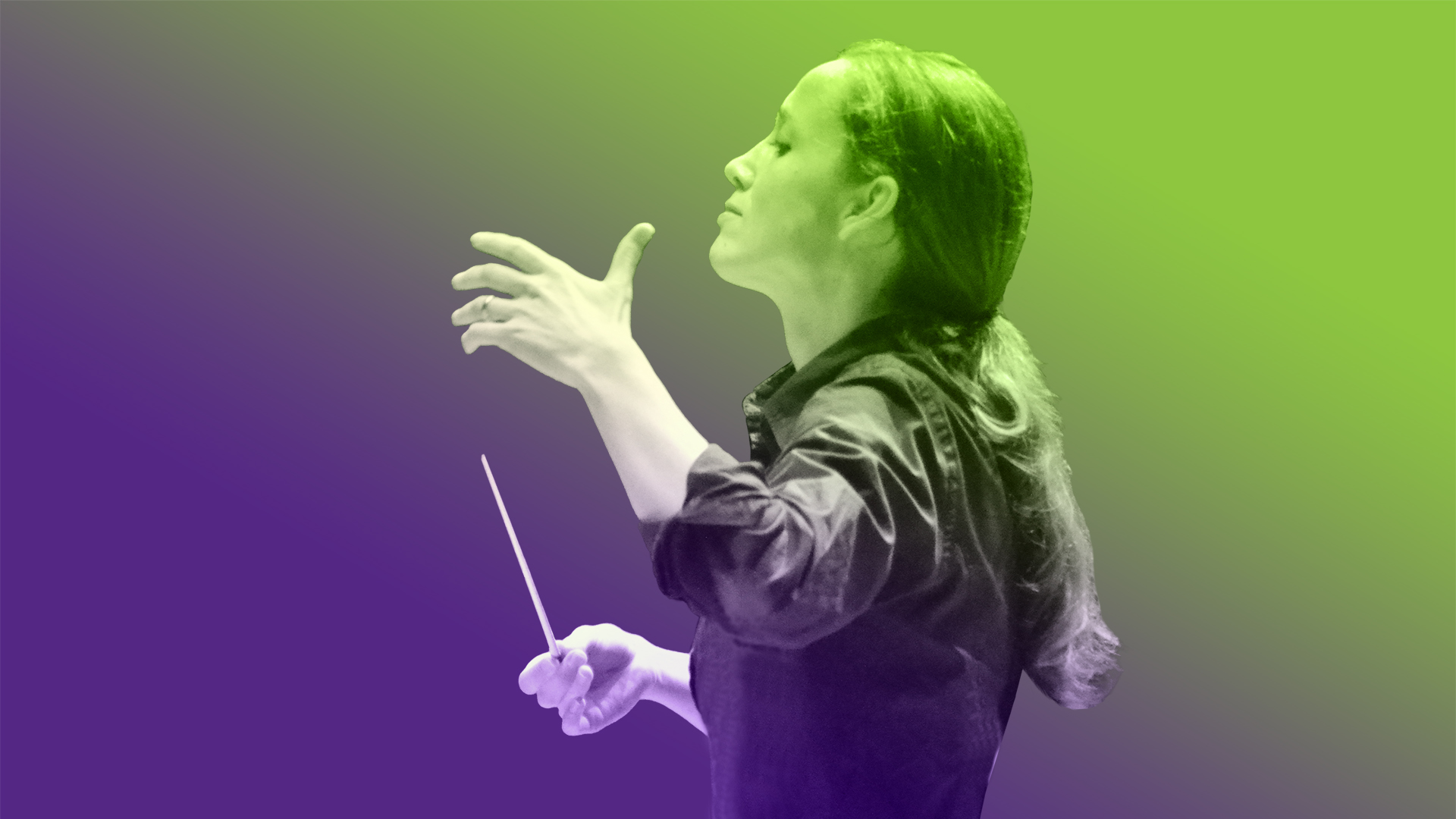
This month, Australian-born conductor Jessica Cottis makes her debut with the Charlotte Symphony to conduct a fascinating program including the Charlotte Symphony premiere of Kurt Weill's witty and theatrical The Seven Deadly Sins. We sat down with Ms. Cottis to discuss her path to the podium and what the audience can expect from her debut performance.
What led you to pursue conducting as your career?
For me, growing up in a very musical family, music was very much a means of expression and communication, even more so than speaking. I did my undergraduate as an organist and musicologist and had a really excellent career, but I got carpal tunnel syndrome in my twenties and I never knew when my hands would be reliable. I needed to rethink how I was as a musician and it was incredibly hard, particularly so because I had started music at such a young age. Conducting was very intoxicating - to think there was this opportunity to get so much depth and nuance from a symphony orchestra. I was like a match struck in the dark - it was sheer exhilaration that we as humans can express thoughts, emotions, and stories through this incredible art form and this incredible instrument, which is the orchestra itself.
What is it like stepping in front of a new orchestra for the first time?
I love meeting new orchestras because they all have such a personality, and I never know what it's going to be until we start making music, really! I took a look at many of the recent programs that the Charlotte Symphony has put on and they seem forward-thinking, friendly, and really passionate about music. For me, one of the greatest things about being a human is being able to create and participate in art, and I really feel that passion from everything I've seen. So I'm very much looking forward to being in Charlotte and meeting the orchestra.
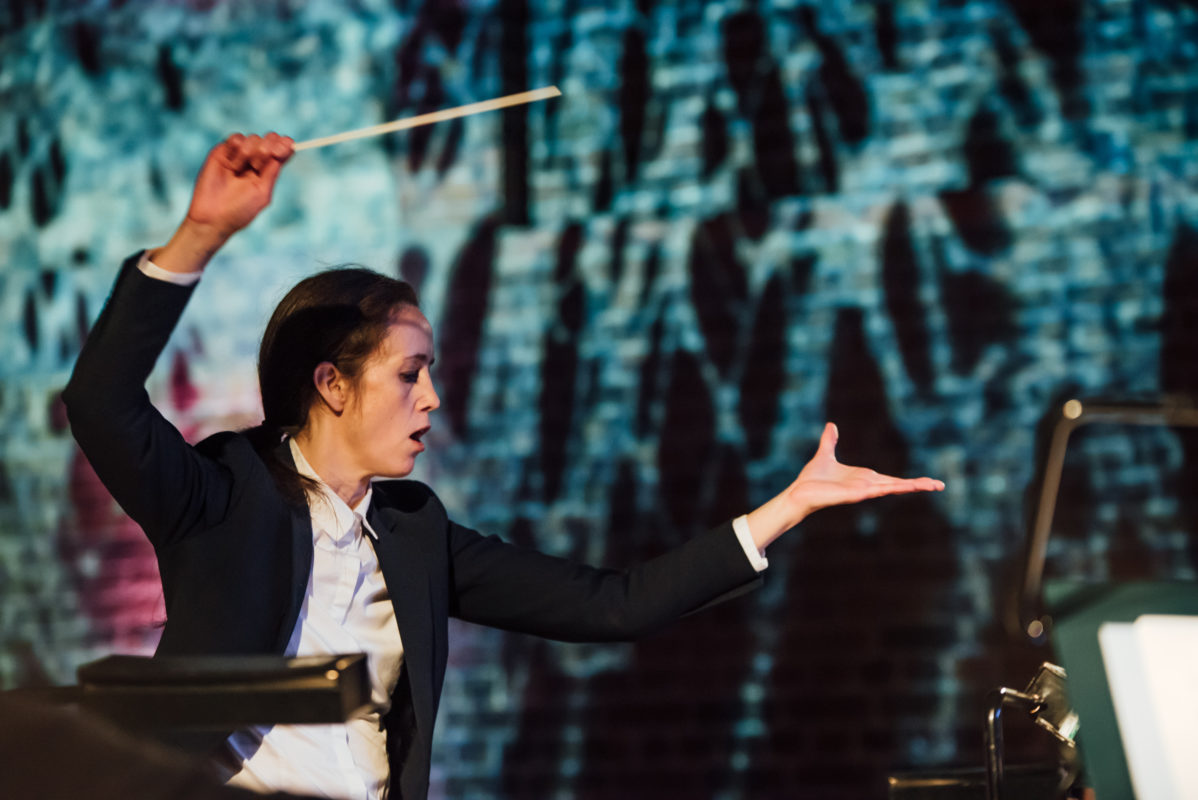
You've created such an interesting program, from Stravinsky to Kurt Weill and Jessie Montgomery. What goes into programming a concert like this?
One of my greatest interests in music is programming, and in the way that we can find connections between music that might be so disparate - 300 years between pieces or completely different focuses from the composers, but that one piece might lead somehow, imaginatively, into another and maybe even open our ears in new ways so that we can hear old music afresh.
In this program, as with any program, I tend to start with a seed of an idea, and then from that seed I look to see how it grows, and I never know from the beginning how it will grow! The initial idea of this program was that I really wanted to do The Seven Deadly Sins with the Charlotte Symphony. Somehow that felt like a perfect matching of minds and musical intellect. It's such a fantastic piece, so incredibly theatrical, and it has such a brilliant way of depicting humor, ideas, and nuances through Kurt Weill's musical style. He had only just fled Berlin for Paris in 1933 and this is his imaginary fantastical version of the United States; of this young woman sent out into the world to make money by her greedy exploitative family. It's almost 100 years old but it's still so fresh. The work includes so many different musical styles: foxtrots, a church choral, barbershop quartet, tangoes, and lots of wit. And that wit is really what led me to the Stravinsky.
That would be the Stravinsky Circus Polka?
Yes, the piece was written for Ringling Bros. and Barnum & Bailey Circus, for elephants to dance to - which is incredibly preposterous! There's a certain theatricality to the circus that works really well with the Kurt Weill piece.
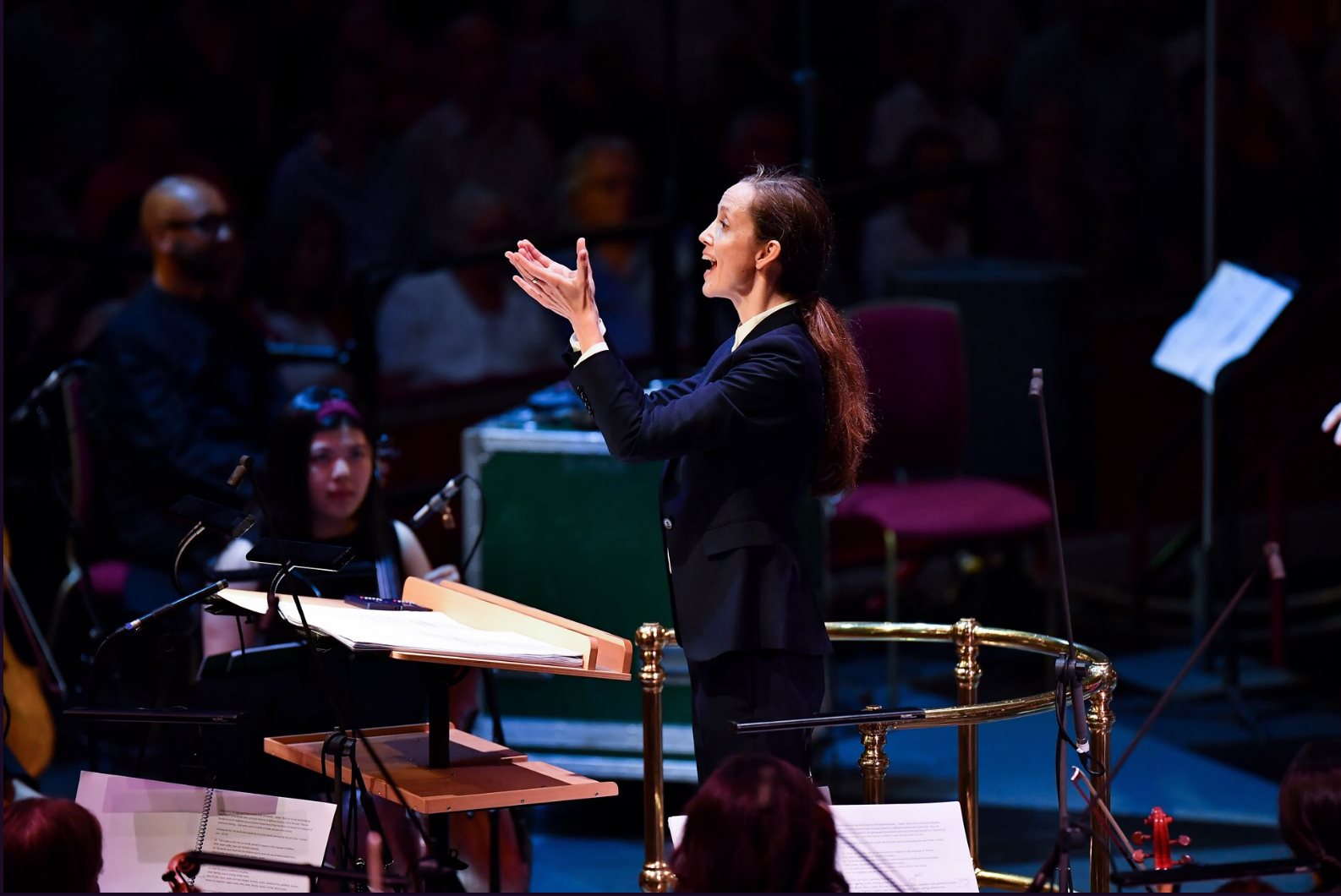
Which leaves us with Ravel's Piano Concerto and Jessie Montgomery's Strum.
The Ravel has a strong jazz influence, which linked so well to both the Weill and the Stravinsky. And I'm very much looking forward to working with Stewart Goodyear, I think this will be a really great meeting of musical minds. I've known Jessie Montgomery's pieces for a while and I've conducted Strum in numerous places - I just love it! It's just what it sounds like, the string players spend quite a lot of time strumming their instruments rather like a banjo. I thought it linked in well to the dichotomy of the classical being influenced by more popular styles of a particular time.
I've heard that in your limited spare time, you're learning to fly helicopters!
Yes! I've had to stop due to the pandemic, but I look forward to getting back into that whenever it happens. There's something really special about flying. It's exhilarating and humbling, and sort of life-affirming being able to lift oneself above where we normally are and look down and have a birds-eye view. As musicians, we spend so much time on forensic detail - and we must, it's so important - but keeping an eye on the bigger visual architecture is so freeing, really.
Read more
The Mahler Journey
January 5, 2022
This month, Music Director Christopher Warren-Green and the Charlotte Symphony complete their journey through Mahler's Symphonies with his final completed work, the powerful and introspective Symphony No. 9.
Gustav Mahler is, undoubtedly, one of the most important and influential composers throughout history. His towering symphonies contain multitudes the very essence of the human condition love, hatred, life, and death. It's easy for people to hear echoes of their own fears, joys, doubts, and sorrows in his music. It's universal.
Despite this, decades after his death, Mahler's music was overshadowed by the modernist sounds of the second Viennese school - Schoenberg, Berg, and Webern - and his longer-living contemporary Richard Strauss. It wasn't until the 1960s that conductors, most notably Leonard Bernstein, began to rediscover and champion his works; demystifying the genius to be found within these complex and massive symphonies."A Symphony must be like the world. It must contain everything" ~ Mahler

And this is precisely what Christopher Warren-Green set out to do when, early in his tenure as Music Director, he invited Charlotte to join him and the Orchestra on a journey through Mahler's most epic Symphonies.
"By now, everyone knows that Mahler is one of my absolute favorite composers," said Music Director Christopher Warren-Green, "not only because of the pure majesty and grandeur of his compositions but because of their complexities."
Now, in the final leg of the Mahler Journey, Maestro Warren-Green hopes all of Charlotte will join him in experiencing Mahler's greatness through the Ninth Symphony. "If you've ever heard Mahler's music, you'll know what I mean, especially if you've heard it live, there is simply nothing like hearing it in person in the concert hall."

Mahler was consumed with thoughts of his own and others' mortality as he composed his Ninth Symphony, following the death of his four-year-old daughter and the diagnosis of a heart condition that would take his life just four years later. But if despair and anguish are undoubtedly present in the music, they stand side-by-side with a passionate love of life and nature, and a heroic defiance of death.
"You've trusted me along this Mahler Journey thus far," said Maestro Warren-Green, "and I truly do hope you'll join us for the final part. You'll be in for a real treat."
The Curse of the Ninth
Mahler went out of his way to avoid a Ninth Symphony as neither Beethoven nor Bruckner had managed to reach a Tenth. At first he titled Das Lied von der Erde as the Ninth, but crossed the number out. As he wrote his next symphony, which he called the Ninth, he said to his wife, "Of course, it's actually the Tenth, because Das Lied von der Erde was really the Ninth...the danger is past." Despite his efforts, Mahler died before he could see the Ninth Symphony performed. Read moreWelcome Back to the Symphony!
April 8, 2021
It's been over a year since the Charlotte Symphony has had an audience in the hall during a performance, but that will finally change this month when the CSO welcomes back a limited number of subscribers into the Belk Theater for a performance of Mozart's Violin Concerto No. 3, featuring violinist Simone Porter, and Respighi's Ancient Airs and Dances.
In-person seats will be limited, but if you weren't able to snag a ticket, fear not! The CSO will bring audiences back on May 14 and 15 for a special concert featuring Grammy-Award winning saxophonist Branford Marsalis performing Ibert's Concertino da camera and Schulhoff's jazz-inspired Hot-Sonate. The program will also include Bartok's Romanian Folk Dances and Gershwin's Lullaby.
The concerts in May, conducted by Music Director Christopher Warren-Green, will feel like a homecoming for musicians and audience alike. "These performances are going to be very emotional for all of us, said Maestro Warren-Green. "For the past 13 months, we've been connecting with our audiences through virtual concerts and in small groups, but I cannot wait to safely reconnect with our CSO family in person."

Streaming concerts have made it possible to continue performing throughout the pandemic, but it just cannot replace the unique experience of sharing in a live orchestral concert. Maestro Warren-Green agrees, "to feel the energy of an audience from the podium again I've missed it so much!"
Spotlight: Branford Marsalis
April 8, 2021
Branford Marsalis hails from the musically rich and diverse city of New Orleans and was raised in a house of jazz royalty - his father, Ellis, was one of New Orleans' most esteemed pianists and music educators, and he's the oldest among jazz siblings Wynton, Delfeayo, and Jason Marsalis. The New York Times described the Marsalis family as "jazz's most storied living dynasty."
Marsalis has performed with countless jazz legends, formed his own quartet in 1986, and is the winner of three Grammy awards, but his musical interests are not confined to jazz, he is also an accomplished and dedicated performer of classical music and has made a name for himself as a soloist in the orchestral world.
Though he bridges these two musical worlds, his approach is different when playing classical music, "I have to be less loud," Marsalis said in a 2019 interview for artsfile. "I need to have a mouthpiece that allows me to control the tone. Non-classical music never really gets to pianissimo. It never gets softer than super loud. To get that you have to practice in a different way. I played clarinet first. My clarinet teacher was always on me about my tone."
When asked which genre was more difficult, Marsalis didn't hesitate, "Classical is harder. Jazz is like a story that you personalize, but classical is a story where you can't use your own words. It's like reading Shakespeare or Chaucer. You have to develop the characters to make them believable, but the words aren't yours, and you're not going to change Shakespeare. You can't. In classical music, you don't play your own notes, you play theirs."
Branford Marsalis performs the first movement of Ibert's Concertino da Camera.
Reflecting on the growth of his classical music career, Marsalis said "Classical music in my 40s got me to a place where I was going to have to practice and become a better player. It made me a better musician."
Branford Marsalis will join Christopher Warren-Green and your Charlotte Symphony at the Belk Theater on May 14 & 15 to perform Ibert's lyrical and soaring Concertino da camera and Schulhoff's jazz-inspired Hot Sonate. >> Get Tickets

A Composer to Know: Jessica Meyer
March 2, 2021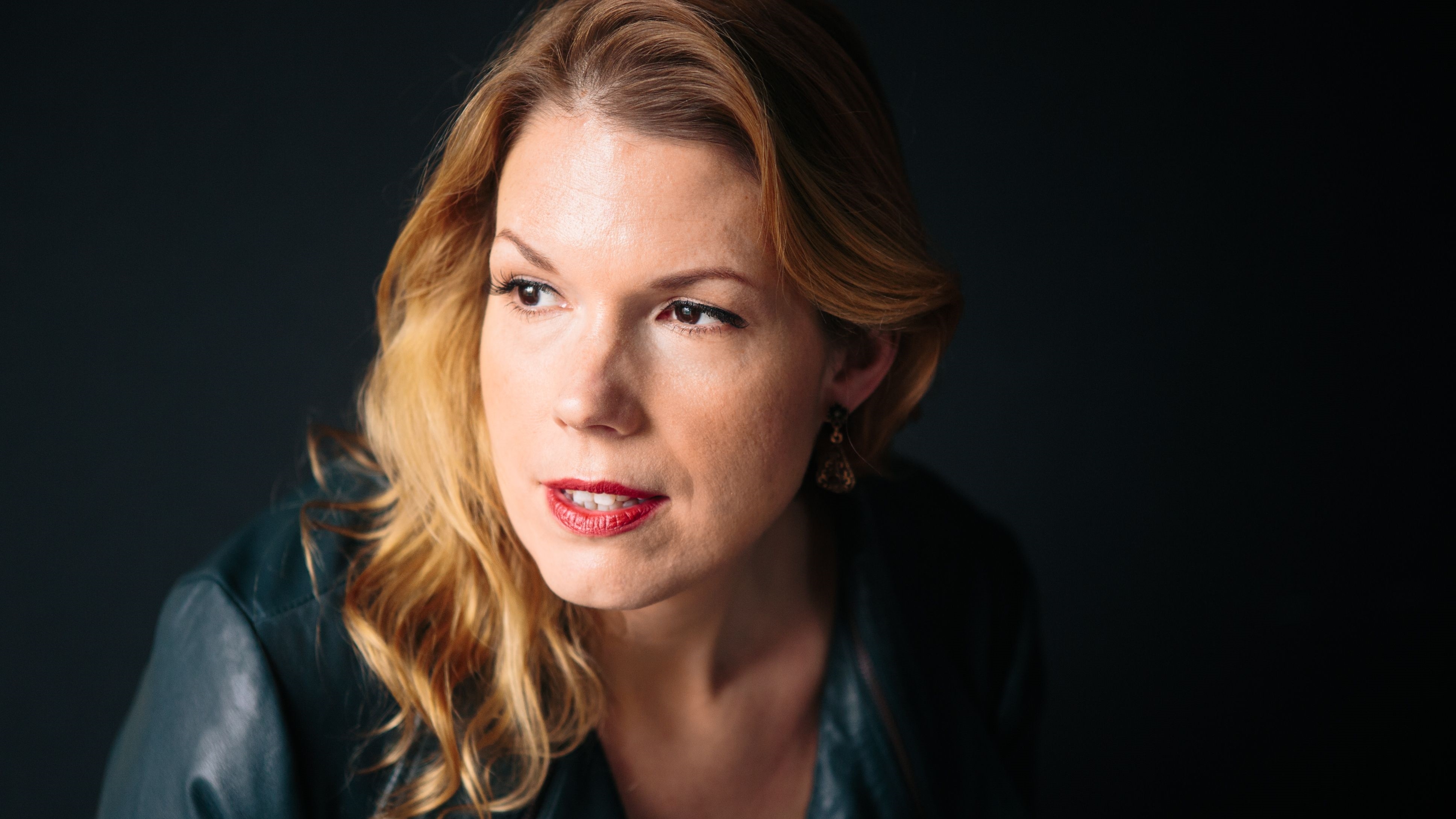
As a critically acclaimed violist and passionate educator, New York-based artist Jessica Meyer embarked on her composition career only seven years ago. In a recent interview for the record label Bright Shiny Things she explained, "After many, many years of playing new music and helping kids create their own music, I could not ignore the nagging feeling I had that I was not doing what I was supposed to be doing. I started to write for myself, but once I started writing for other people in 2014, the floodgates were opened and I knew that without a doubt that was what was missing from my life."
In her solo performances, Meyer uses a single simple loop pedal to create a virtuosic orchestral experience using her viola and voice. Drawing from wide-ranging influences which include Bach, Brahms, Delta blues, Flamenco, Indian Raga, and Appalachian fiddling, Meyer's music takes audience members on a journey through joy, anxiety, anger, bliss, torment, loneliness, and passion.
Meyer's work Slow Burn had its premiere on March 18, 2018, performed by the string quintet Sybarite5.
It is also a combination of all the groovy music I like to listen to, at the heart of which is a theme that most singers wind up singing about at some point: that unrequited love that was never meant to be.
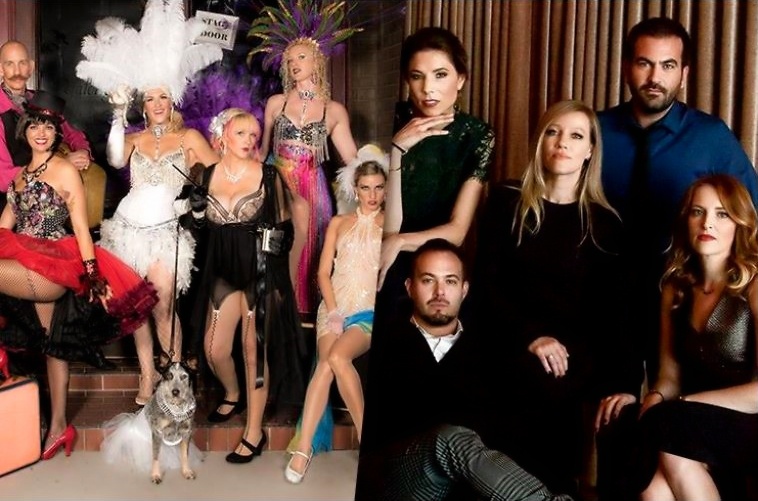
Hear Jessica Meyer's Slow Burn performed by your Charlotte Symphony streamed from the Knight Theater on Saturday, March 6 at 7:30 p.m. (watch through March 13)
Read more
Behind-the-Scenes at a Virtual Performance
February 19, 2021Take a journey backstage to see what goes into producing your Charlotte Symphony's virtual Classical Series Reimagined. From the musicians and conductors to stagehands and video producers the work of many hands comes together to create the concerts that stream directly to your living room.
There are many more opportunities to experience your Charlotte Symphony from the comfort of your own home. Subscribe today for exclusive content, extended access to each concert, and save 10%. Explore the Classical Series Reimagined! Read more
| Older Posts » |
Latest Posts
- MERGE: Symphonic x Electronic
- Heart of the Home Tour Returns
- Composer Spotlight: Nia Imani Franklin
- More Famous Than Mozart: Joseph Bologne, Chevalier de Saint-Georges
- Art in Motion: Rosalia Torres-Weiner Chosen to Design CSO Roadshow
- Announcing Kwamé Ryan as the Charlotte Symphony’s Next Music Director
- Photos: Charlotte Symphony Annual Gala and Concert
- Five Must-See Concerts of the 2023-24 Season
- 5 Pro Tips for the Best Summer Pops Experience
- A Preschool Performance Three Years in the Making


















